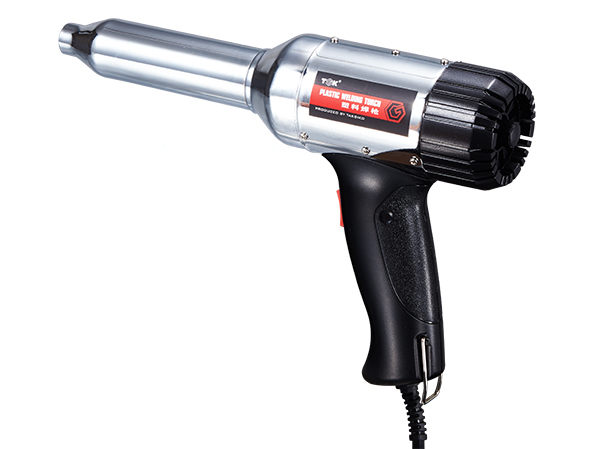
Shenzhen de Hi Tech Co., Ltd.
Contact: Mr. Chen
Telephone: 0755-27872999
Fax: 0755-22636863
URL: uvsw.cn
Address: Shenzhen City, Baoan District Xin'an Yang Tian72 District Luther to high-tech park 11
The following is the latest development of foreign welding tool technology, which is produced by Shenzhen High Tech Co., Ltd., the industrial hot air gun manufacturer.
Resistance spot welding is considered as the most important joining technology in automobile body manufacturing. Although there are some new technologies such as laser beam welding and adhesive bonding, spot welding will retain its stable position in the manufacturing of automobile body. Because many factors will affect the quality of spot welding, and the quality standard of spot welding is very high, so it is necessary to systematically check the quality of spot welding joint.
To this end, the past practice is to use damage testing methods for random testing. Because this method has some shortcomings, such as: the test sample will damage or deform, long testing time, will damage and loose the workpiece in the gouge in the process, the method uses the "zinc binder" will use gouge bonding point could not be found, so it is not suitable for the modern manufacturing technology and cost accounting consciousness. This paper provides a remedy method "point line ultrasonic testing method", in this way, the welding spot inspection can be carried out during the welding process.
"IQR system" is a new control process for on-line quality testing and Optimization in resistance spot welding process
This method can be used to compensate the interference of some parameter changes in the control based on the evaluation of U - I characteristics, such as the change of plate thickness, the change of coating thickness and the wear loss of electrode. Due to the simplicity of the operation, the IQR controller ensures stable and reliable high quality spot welding, and saves time and cost.

In the field of resistance spot welding, one can clearly see the obvious trend of servo motor drive in welding equipment. In the 2001 Essen international welding exhibition, not less than 12 manufacturers show welding equipment using servo motor drive technology (installed in the micro spot welding machine, manual and robot gun, and base on the spot welder). According to the experts' prediction, the welding equipment will be replaced by servo driven welding equipment more and more because of the good welding quality and short welding cycle. In addition, some manufacturers show that the welding torch is driven by air cooling servo motor, and it has a wide application prospect for the welding task which requires the force of electrode and the welding cycle time.
The welding head with piezoelectric micro spot welding device has ideal linear drive, re set the parameters, and can easily be programmed to move the line. Because the mechanical structure is firm and stable, and the piezoelectric drive technology is adopted, the time required for positioning before and after welding is very short. Therefore, we can lose no time to switch from work cleaning stage to working stage and accumulate welding power. Because the mechanism is strong and the drive system with high dynamic performance is adopted, the welding torch electrode head is more suitable for automatic welding device, and the welding efficiency is very high.
The conventional torch used for riveting and spot welding is challenged by more demanding robots with higher productivity in terms of speed and accuracy. In order to achieve the larger scope of work, and the bending degree minimum, through careful design and development of a new generation of robot welding, the manufacturing material of carbon fiber reinforced plastic structure light (CFRP). According to the research results, a welding torch sample was manufactured after careful test and optimization. The recently developed structure has a longitudinally strengthened, very rigid bent arm and provides a powerful reaction force, which can be used to control the offset of the compensation angle online. This application promotes the potential for further development of better modern fiber materials for light structures.